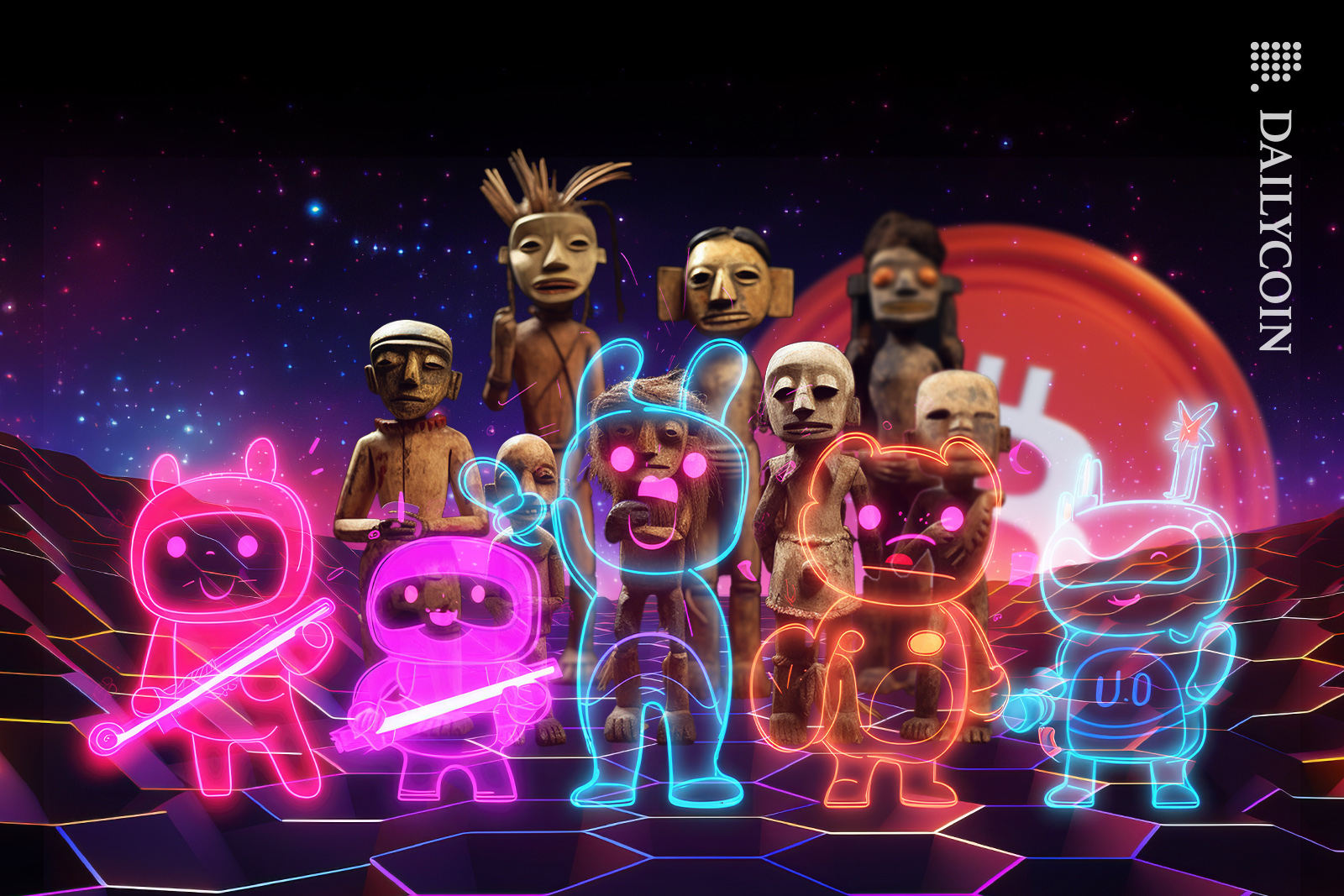
- Bitcoin core dev reveals plans to end Ordinals.
- Supporters doubt Ordinals can be ended.
- The debate around Bitcoin’s “allowable” use cases gets reignited.
Ordinals have courted controversy since the first “taproot wizard” Inscription was made in February. While supporters tout freedom of choice and expanded use cases, critics allege wasteful use of blockchain space and chain bloat. In the latest twist, Bitcoin core dev Luke Dashjr revealed his latest attempt to kill off the divisive on-chain protocol.
Bitcoin Ordinals No More?
Dashjr revealed that an update to the “Bitcoin Knots” node client kills Ordinal’s ability to “spam the blockchain” by limiting the extra data required to write Inscriptions into a block. Dashjr stated that the fix is “still vulnerable,” but plans are in place to patch vulnerabilities in version 27, which will drop next year.
A node client is the front-end software that accesses and processes blockchain transactions on a local computer. Bitcoin features many node clients, suggesting that Dashjr’s plan would be limited to users of Bitcoin Knots only. However, Dashjr stated that it is “correct” that Ordinals would cease to exist once version 27 is released.
Sponsored
Ordinals proponent Zack Voell posted a tongue-in-cheek response to Dashjr, calling people to “stop spamming the chain.” Voell also disputed Dashjr’s claims of killing off Ordinals by posting the difference in the number of users of the Bitcoin Core client node compared to Bitcoin Knots.
The pushback from Ordinals supporters has reignited the broader debate on censorship and restraints in utilizing the Bitcoin protocol. This is particularly relevant as prominent figures in the community highlight the benefits of the on-chain protocol.
Ordinals Represents Freedom
Ordinals supporters argue that Bitcoin’s decentralization ethos means the network should be usable for any purpose, including non-financial transactions. Despite inefficiencies such as rising fees or blockchain bloat, restricting blockchain activity risks setting dangerous precedents undermining Bitcoin’s censorship resistance.
Sponsored
According to on-chain analyst Willy Woo, Ordinals could be a long-term solution to end block rewards in the distant future. Woo believes the network will fail unless fees, such as those generated by writing Inscriptions into the block, are worth the miners’ effort to maintain the network.
Similarly, MicroStrategy chair Michael Saylor stated that Ordinals represents the flow of creativity and talent away from other chains into Bitcoin, leading to the development of “a lot of applications on the Bitcoin base layer.”
On the Flipside
- Bitcoin fees are soaring due to the high number of Ordinals transactions.
- The current average fee is $19.46, making the network unusable for many.
- Satoshi Nakamoto would be against Ordinals per a forum post stating that large datasets do not scale.
Why This Matters
The Ordinals debate highlights deeper tensions around permissionless growth colliding with blockchain scalability limits. Added activity drives functionality and security but worsens efficiency. However, outright banning Ordinals raises censorship concerns that contradict the idea of decentralization.
Read about Bitcoin’s recent strong run of form here:
Bitcoin Flirts With $44K as Bulls Bet on $48K Year-End Price
Learn more about Pepe’s jump in price following a new Binance promotion here:
Pepe Hits 20-Week High After Binance’s Loan Promotion
